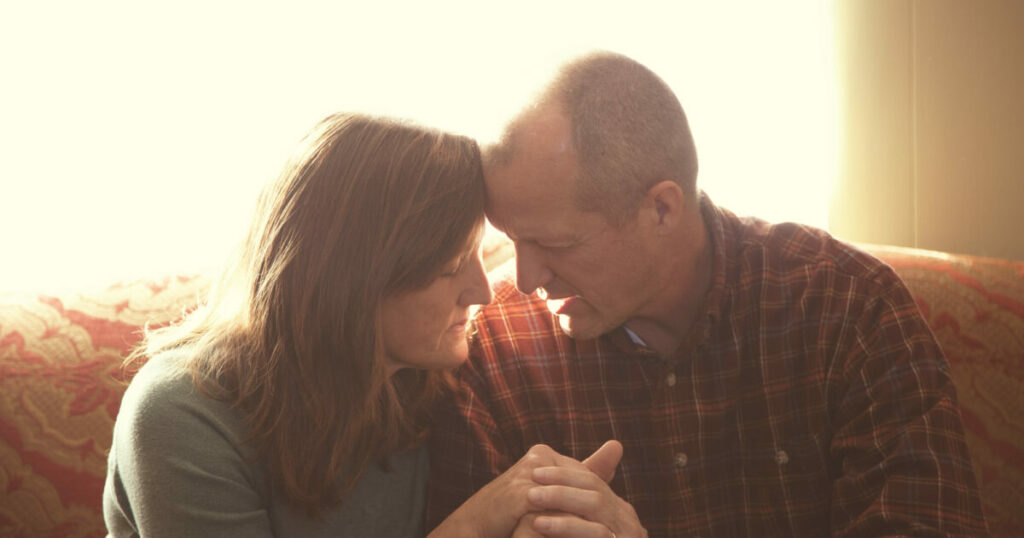Editor’s Note: Throughout the month of June, The Lutheran Witness will be sharing print articles from the past few years on topics of marriage, family and sexuality. Check back for more content each week in June, and view these and other articles here.
By Joel Biermann
Not all virtues, it seems, are created equal — at least not in the world in which we live. Some enjoy almost universal recognition, approval and even praise. When a young person shows unflinching courage, the world applauds. Self-sacrificing honesty, the kind that returns a wallet full of money, is universally prized and encouraged. American society still recognizes the singularly Christian virtue of humility as an admirable and endearing character trait. When believers strive to cultivate such worthy manifestations of right living, they find ready support from other Christians and even from unbelievers.
But, when the conversation turns from courage or honesty to chastity, all of those positive associations evaporate. Broach the subject of chastity, and the response of those around you will likely fall somewhere between indifferently lukewarm and awkwardly embarrassed.
Perceptions about chastity
Compared to other virtues, there is muted enthusiasm for chastity. The individual willing to make a public profession of his own pursuit of chastity is typically received by the wider culture with polite perplexity. The media may well marvel at the chaste person and even admire his personal, countercultural stand with a “Good for you!”
It is unlikely, though, that his chastity will be celebrated as a virtue worthy of emulation by the masses, who for their part are likely to consider him with bemused curiosity or even condescending pity. They take it for granted that there is something unnatural about the interesting, single, young adult who is still a virgin; chastity is seen not as a virtue worthy of honor, but as a quaint peculiarity or a problem to be solved. Indeed, for many people, an active sex life is now taken for granted as a basic human need — on the same list with air, food, water and sleep; it is a right not to be denied.
The sense that chastity is somehow fundamentally at odds with what is natural and necessary seeps even into the church. The topic garners little enthusiasm, and the virtue of chastity is trivialized by being reduced to an obligatory, one-time, lackluster exhortation, perhaps feebly rising to an expectation, urging children freshly arrived at adolescence to resist sexual urges, peer pressure and temptations, and to “wait until marriage.” Such a view misses the point of chastity altogether and serves only to validate common misconceptions about the virtue.
Defining chastity
Chastity is not sexual abstinence. It is not an unnatural suppression of God-given desires. Chastity is not a virtue limited to young people or the unmarried. Chastity is not a vestige of a bygone era. Chastity is not suppression of sexuality. Chastity is the practice of rightly embracing the fullness of one’s bodily self in a way that honors God and cares for the neighbor. In other words, chastity is thinking about and using one’s body, particularly the sexual aspect of that body, in a way that lives out the will of God for our sexuality and personhood.
Implicit in this understanding is the appreciation of the integral part that one’s sexuality plays in personal identity. We are individually the people God creates us to be, each one defined by the peculiar characteristics of personality, intelligence, physical traits, proclivities and assorted talents, all of which work with our environment and upbringing to shape us into the particular person we are. And preeminent in that array of factors is the fundamental and defining reality of one’s sex. God created man in His image as male and female. Sex is not incidental but essential to individual human identity.
Marriage and chastity
The relation of man and woman together in the intimate union called marriage is at the core of God’s plan for the entire creation. The specific, given sexual reality of each person as either male or female and the subsequent intimate interrelationship of a man and a woman together within the bond of marriage is basic to the right functioning and fulfillment of God’s design for this world.
In other words, sex matters a lot! Sex binds a man and a woman in the profound relationship of marriage that not only serves those two, but provides the foundation for all of society and extends the right working of God’s creation through space and time.
Chastity, then, acknowledges the sacred importance of sex and the wonder of the physical, in-the-flesh reality of our individual identity. It celebrates the joy of being God’s creature integrally fitted into His creation for that creation’s flourishing. Chastity is not an invasive infringement on individual personhood. It is not some prudish curtailment of happiness and personal fulfillment. It is the opposite. Chastity is the celebration of God’s gift of vibrant life and confidently trusts in His promise to bring all of His creation, including each one of us, to the complete fullness of His eternal design for the universe. To live chastely is to live celebrating God’s creation.
Chaste living
When we keep all of this in mind, we see clearly that the Sixth Commandment is rightly understood not as a harsh prohibition on a natural impulse, but as the articulation of God’s will for the great gift of our sexual being. To be chaste is to live in tune with God’s design for His creation. In that design, each person’s sexual reality as man or woman is geared toward the marital union, but finds its ultimate completion in the unfolding of God’s full and final redemption of the creation.
In other words, while marriage is always the backdrop for our sexuality, one does not need to be married to have a fulfilled and meaningful life. Both the single person and the married person strive to practice and honor the virtue of chastity.
The man joined to his wife in the bond of marriage gives himself fully and only to his wife in body and soul. He lives a chaste life when he celebrates God’s gift of sex exclusively within that sacred trust.
The single woman lives chastely when she affirms in her whole life God’s will limiting sexual union to the bond of marriage, and then, in her whole life, exploits her uniquely feminine attributes — essential aspects of the sexuality that suffuses her being — as she accomplishes all that God has given her to do.
This expands our understanding of sexuality beyond physical actions of sexual union; it becomes clear that using our sexuality in ways that honor God’s will must concern every person of every age. Like every other Christian virtue, chastity appropriately applies to all people. From birth to death, we all learn and practice what it means to live rightly as sexual beings within the particular circumstances in which God has placed us.
Chastity’s opposite
Chastity is a trait, marker or goal that defines a life rightly lived and an ideal for which we should all strive. The antithesis of chastity is not simply adultery, promiscuity or thinking too much about sex. The opposite of chastity is using one’s sexuality purely to serve self and to satisfy personal desires, urges and goals in order to enhance one’s own life without regard for others. That is the core of lust, the vice that subverts chastity.
Lust turns others into objects to be used rather than seeing them as unique creations of God to be served and honored. Lust does not think about sex — it does not think at all. Lust simply charges after cravings with the excuse that it is “only natural.” Lust subverts sexual yearning, a gift meant to foster and enhance a marital union that celebrates God’s gift of the other. Lust degrades sex to an animal urge selfishly sated. Chastity does not ignore, renounce or fear sex; it thinks, prays and decides rightly about sex so that a chaste person lives a chaste life as a sexual being within God’s plan.
A modern-day struggle
Given the fundamental place of sex and sexuality within God’s design for creation, it is hardly surprising that the forces of evil opposed to God and His creation target the gift of sex for perversion, mockery, idolatry and ultimately destruction. One of the most effective ways to ruin utterly any gift of God is to elevate it to the status of idol. Our society’s obsession with sex in so many different ways, from pornography to determining one’s gender identity, only manages to fully corrupt what God intended for good.
The church does not counter this assault by ignoring sex, suppressing talk about sex or presenting chastity as an onerous, unpleasant, unnatural negation. Yes, the world’s preoccupation with sex and sexuality is degrading, demeaning and dangerous; but for Christians the solution must lie not in negation, but in celebrating the gift of sex and sexuality as God wills it — yes, within the bond of marriage, but even more, within the certain hope of a fast-approaching day of final and full redemption for the whole creation.
The church needs to reclaim God’s marvelous plan for human sexuality without embarrassment or reluctance. When Christians make that affirmation, we will be able also to reclaim the virtue of chastity and set it before our people as the vital, strong and beautiful virtue that it is: a standard and goal that should inspire, encourage and ultimately define all those who follow Christ.
This article originally appeared in the January 2021 issue of The Lutheran Witness.
For more resources on marriage and the family, visit the LCMS Family Ministry page.





Re: “The church needs to reclaim God’s marvelous plan for human sexuality….”
How, exactly, would this reclamation campaign be best undertaken? And how would its outcomes be assessed?
I know this is 1.5 years since you posted, but one way is for pastors to not be timid about this subject from the pulpit. The OT and the NT point to God as being the bridegroom and the Church being the bride. Our God in heaven has given us the example of marriage to follow. This is why there is so much talk about “adulterous” nation within the Scriptures. Because when His Church “cheats” it is adultery within the contexts of this marriage between God and Church. In the same vein, pastors, should be able to easily talk about the same chasteness within the only the confines of our human marriages. Another way is to teach this in Sunday School (whether it be Adult or children’s). When the Church is silent, then the people will think it’s not as important.